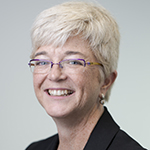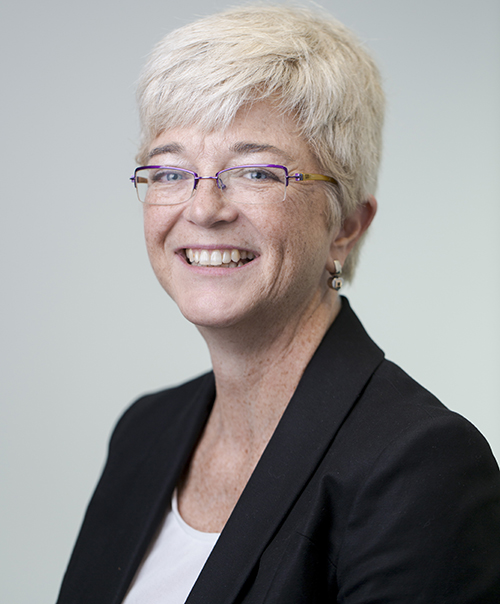
Gai Moore

The Sax Institute’s Gai Moore admits that there’s no such thing as a simple Evidence Check.
Each of the rapid reviews that are brokered by the Sax Institute on behalf of policy agencies brings different challenges and complexities, says Ms Moore, Principal Analyst in the Institute’s Knowledge Exchange division.
But having recently reached the impressive milestone of overseeing her 100th Evidence Check report – about half of the total completed by the Knowledge Exchange team to date – Ms Moore is more convinced than ever about the program’s value.
Barriers to accessing research
She joined the Institute in 2005 to help launch Evidence Check, and recalls that an extensive survey of policy makers at the time found they were keen to use research, but found it difficult to access and synthesise the evidence they needed to answer policy questions quickly.
Evidence Check helped fill the gap by brokering and managing rapid literature reviews by expert researchers. Each Evidence Check is tailored to address policy makers’ specific questions and they are completed in a timeframe of between eight and 12 weeks.
Policy makers who commission Evidence Checks use them to better understand a problem, or for priority setting or to determine the details of policies or programs (policy development) or evaluation.
A shifting environment
The program and the policy environment have shifted significantly since the program launched, Ms Moore says. The client base has extended to include government departments around Australia, as well as NGOs. And while the majority of reviews still concern population and public health issues, Evidence Checks have also been commissioned on clinical studies, economic modelling and models of care.
A look through the Evidence Check library reveals reviews on topics ranging from the safe management of expressed breast milk to the principles of public health interventions to cancer patients’ use of emergency departments.
Ms Moore says the biggest shift has been in the mindset around evidence-based policy, which is now more integral to the policy-making process than it was a decade ago
“Today, no one questions whether evidence is useful in the policy process, and we have made a contribution to that shift,” she says.
The Program’s follow up on finalised reports shows that the majority of reports are put to use by the agencies that commissioned them, and a significant proportion have helped to shape policies and programs.
Skills that translate
While her career has included a diverse range of roles, Ms Moore says there is a common thread – a desire to foster understanding among diverse groups.
Her initial degree was in modern languages and she spent many years working in Italy and the UK, before returning to Australia to a role co-ordinating multicultural health in south west Sydney.
“The skills are actually very similar to those used in this role,” she says. “You are trying to understand the needs of the community or of the health service, and to translate that in a useful way.”
Knowledge exchange has also been the focus of her own studies. In 2006 she completed a Masters in International Healthcare in Milan, where she also undertook an internship with the WHO. Back in Australia she embarked on a PhD focused on the use of evidence in policy, which she hopes to complete this year. She was awarded a HARC scholarship in 2013, allowing her to visit and learn from three internationally-recognised groups in Europe, the UK and Canada, to further understanding of how best to present research evidence for policymakers.
“I’m looking at what works to increase the use of research by decision makers,” she says. “It’s a win-win ‒ I get to do something I love and the Institute also benefits.”
Her work with the Knowledge Exchange division also continues to present new challenges.
“I can’t say that there is a single day when I have been bored at the Sax Institute,” she says. “To get from a broad policy problem to discrete research questions that will get the answers people need for that particular decision is always challenging and complex.”
Find out more
- Find out more about the Evidence Check program
- View the Evidence Check library
- View a video on the HARC Scholarship program
- Read Ms Moore’s paper in Evidence & Policy: What works to increase the use of research in population health policy and programmes





